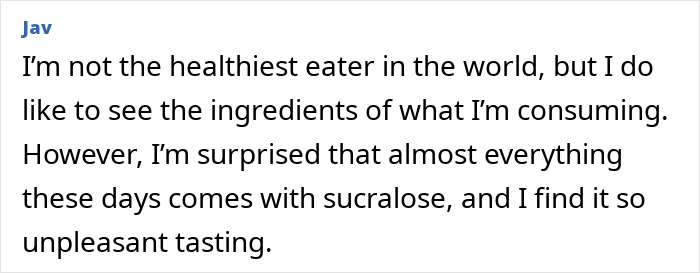Camila Garate, a food engineer from the University of Chile, never planned on going viral. But a few supermarket videos later, she built a community of consumers tired of being misled.
The mother-of-two has taken social media by storm with a simple mission: to make shoppers smarter. Her platform is dedicated to demystifying supermarket products, revealing which ones are hiding behind misleading marketing, which contain unnecessary additives, and which are worth putting in your cart.
From tomato sauces diluted with water to protein bars masquerading as health food, Camila is not afraid to call out brands, even if it means stepping on corporate toes.
“The information is right there on the label,” she exclusively told Bored Panda. “But as consumers, we’ve gotten way too trusting.”
Food engineer goes viral by exposing supermarket’s most misleading products
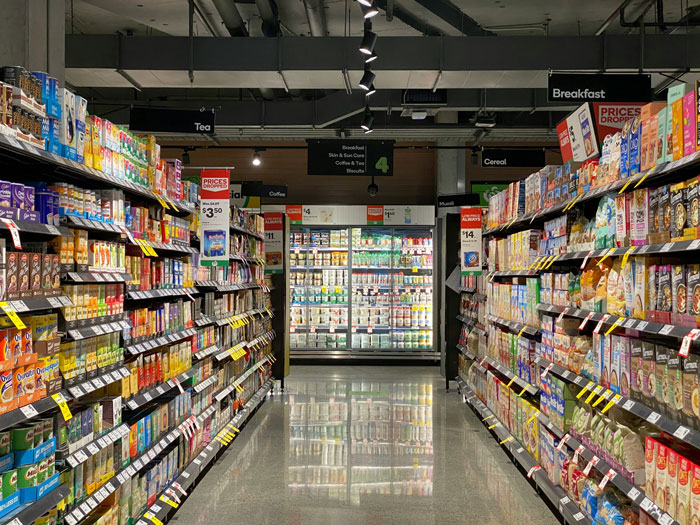
Image credits: Unsplash/Franki Chamaki
Despite being critical of the food industry, Camila stops short of calling their practices outright scams, as they are technically operating within legal boundaries. But that doesn’t mean marketing can’t be misleading.
“We’ve grown accustomed to buying products without ever looking at labels,” she said.
“We are trusting an industry that isn’t necessarily focused on taking care of us.”

Image credits: Instagram/megustacomerrico_
According to the food engineer, the first step in decoding what a product is truly about lies not only in the ingredients listed on packages, but the order in which they are listed.
“The most important thing to know is that ingredients are always listed in descending order,” Camila explained.
“That means the first ingredient tells you the true nature of the product.”
The secret lies in checking the order in which ingredients are listed
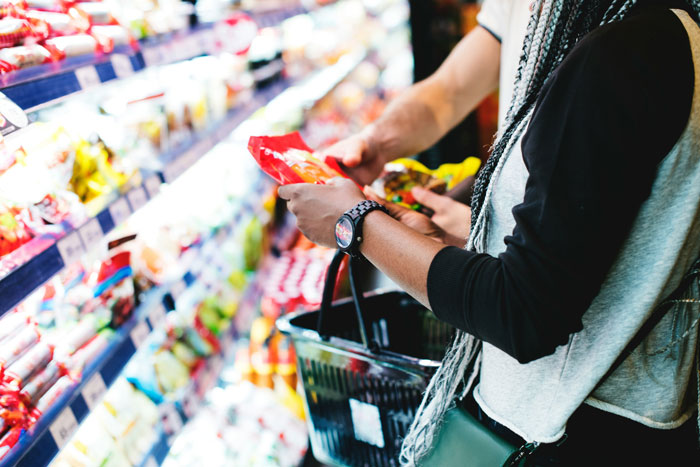
Image credits: Unsplash/Curated Lifestyle
To illustrate her point, Camila shared with us a series of examples.
“Some tomato sauces list water as the first ingredient instead of tomato,” she said, explaining that to make up for the lost volume, these brands then resort to adding thickeners such as Carrageenan, which has been linked by multiple studies to inflammatory bowel diseases.

Image credits: Unsplash/Anna Jakutajc
“The same happens with chocolate where sugar comes before cacao, or whole-wheat bread where refined flour appears first instead of whole-wheat flour,” she added.
“These are the things that should make us stop and think: What am I actually buying?”
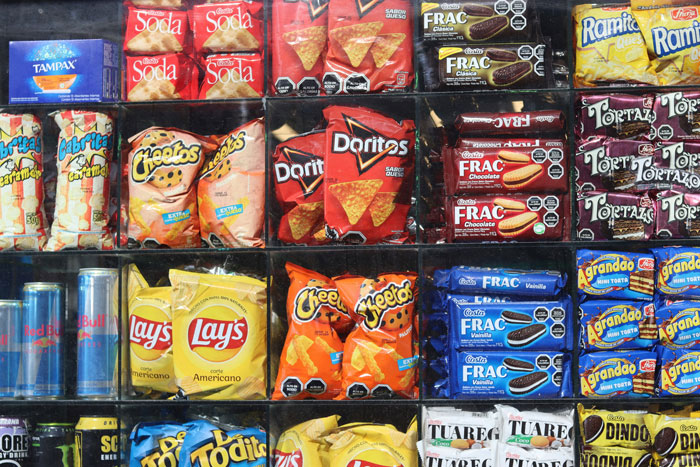
Image credits: Unsplash/Rodrigo Araya
The food engineer then detailed the second step: to choose products with fewer ingredients and cleaner labels.
“The fewer additives a product contains, the less processed and more natural it tends to be,” she said.
Camila nevertheless acknowledges that the widespread use of additives and preservatives often stems from cost-cutting and operational efficiency, not outright deceit.
The engineer explained that companies often try their hardest to be technically legal without outright scamming consumers

Image credits: Unsplash/Tiard
Still, Camila believes transparency is non-negotiable. The problem, she says, isn’t that companies use these ingredients, it’s that consumers are often unaware, misled by branding and empty marketing language.
She cited the growing trend of “premium” sauces that advertise themselves as containing natural ingredients and real meat, only to reveal in the fine print that just 2% is actually beef, with the rest being mostly soy protein.
“At that point, you’re not really getting what you paid for,” she said.
That’s why Camila’s channel resonated with her audience in Latin America. She admittedly isn’t interested in policing people’s diets, she wants to arm her viewers with the tools to make informed decisions.
Camila believes this practice is even worse in products that market themselves as healthy
When asked about which types of products tend to be more marketing than substance, Camila didn’t hesitate.
“Granolas, cereal bars, and protein bars are some of the biggest offenders,” she said.
“They’re marketed as healthy, but often their composition says otherwise. Entire teams work on the marketing, not necessarily on making the product healthier. Don’t believe the slogans, read the labels.”
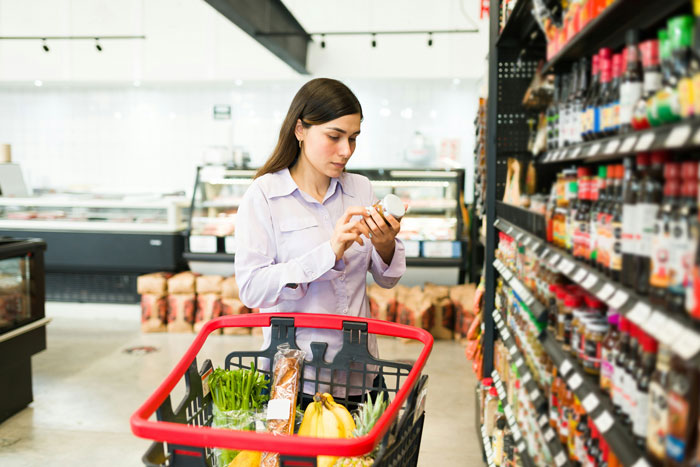
Image credits: Unsplash/Getty
As a rule of thumb, Camila recommends asking a few simple questions before deciding what to buy:
Does it have just a few ingredients? Can I recognize them? Are they simple?
If the answer to the last question is no, if it’s filled with long, unpronounceable names, then it’s worth thinking twice before buying, as per the food engineer.
The expert revealed which additives are absolute red flags due to their harmful effects on metabolism
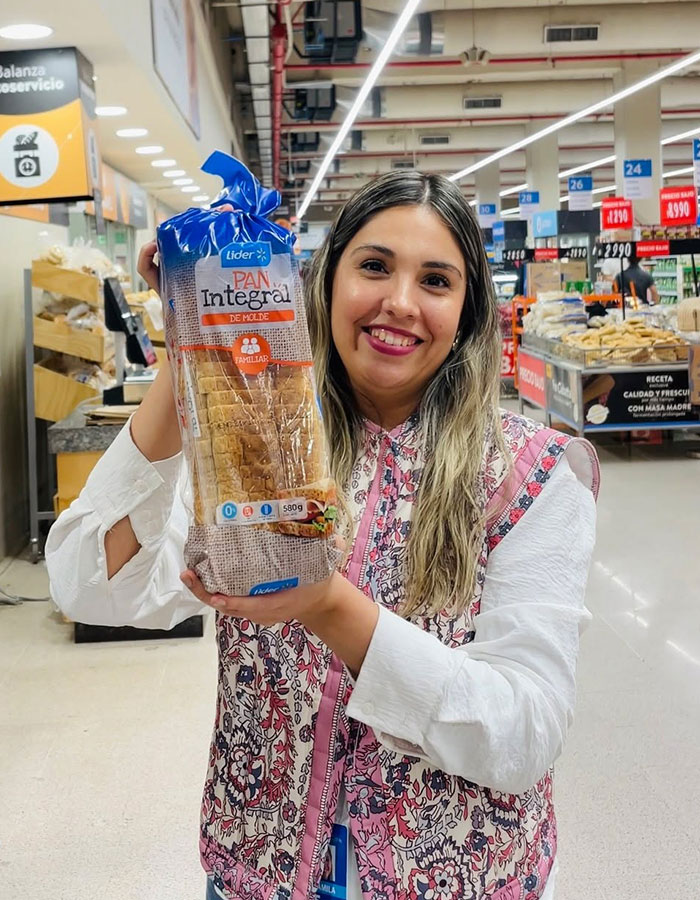
Image credits: Instagram/megustacomerrico_
Among the dozens of preservatives, thickeners, and other additives, Camila warned about what she considers the biggest red flags.
“Number one: high-fructose corn syrup. After that, maltodextrin and palm oil. These are all very common in processed foods we eat every day, such as cookies, cereals, snacks, candy, and more.”
She explained that these additives act on metabolic pathways that promote inflammation, insulin resistance, and the accumulation of visceral or liver fat.
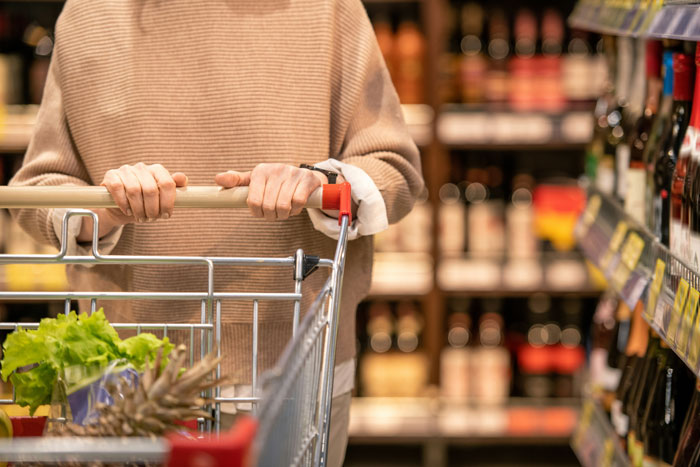
Image credits: Unsplash/Getty
“They also disrupt cardiovascular biomarkers like LDL cholesterol, lipids, and inflammatory profiles,” she added.
“All of this contributes to the development or worsening of conditions like obesity, type 2 diabetes, and cardiovascular disease.”
In other words, while these ingredients may offer convenience and cost savings for manufacturers, it’s the consumers who end up paying the price with their health.
Camila’s videos have already led some brands to reformulate their products

Image credits: European Heart Network
Beyond increasing awareness among consumers, Camila’s videos have already begun to move the needle.
“Recently, I noticed that Van Camp’s tuna reformulated its recipe back to the original,” she said.
“A lot of people might remember one of my viral videos where I explained how they were adding vegetable broth to cut costs, basically replacing tuna with broth. I’m happy to say they’ve now removed it.”

Image credits: Instagram/megustacomerrico_
Despite directly naming and exposing multiple brands, Camila says she has not received any threats or legal warnings.
“None so far,” she said. “And I hope it stays that way.”
In just over a year, Camila’s channel has blossomed into a community of shoppers across Latin America who are hungry for transparency.
“I wanted to teach people how to look out for themselves,” she said. “Because no one else is going to do it for them.”
Camila’s videos have empowered her viewers to make more informed decisions









